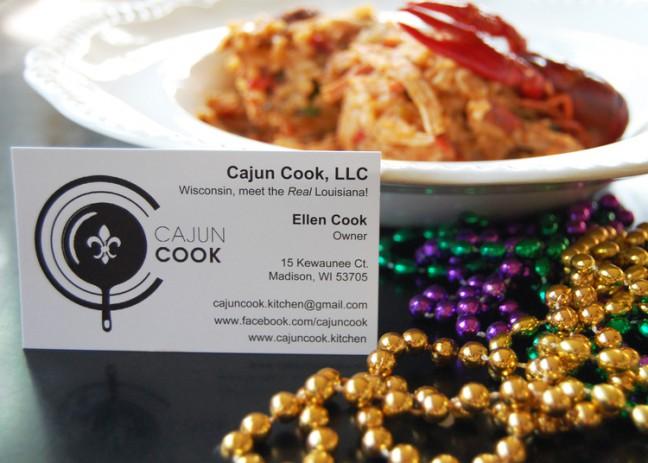When a former University of Wisconsin researcher combines her love of the Dairy State and an affinity for Cajun cuisine, the result is a “WisCajun.”
A term coined by Ellen Cook, the head of culinary business Cajun Cook, “WisCajunizing” consists of using local products to bring authentic Cajun food to the Midwest. Not only does Cajun Cook cater, it also offers online recipes and starter kits for others to dabble with dishes on their own.
Born and raised in Houma, Louisiana on a bayou south of New Orleans, Cook was always surrounded by Cajun food, due to her mother’s Cajun roots. But Cook did not start cooking until she was in college, where her mom would guide her through recipes over the phone.
“They’re family traditions that have been passed down and modified by each generation,” she said.

Cook said the modern day representation of Louisiana food culture has been distorted by the media — people do not understand the historical differences between Cajun and Creole. But for the people of Louisiana, particularly for the people of both cultures, they are distinctly different, Cook said.
The Cajuns originated from Canada, describing their food as “rustic,” she said. According to Cook, the Creoles came to New Orleans from the islands of Haiti with food that “is a little more sophisticated, as far recipes go.”
Before Cook began her culinary business, she worked as a researcher in UW’s animal science laboratory, a job she began when she was 28. Unfortunately, a lapse in research funding forced Cook to move on.
With the support of family and friends in the UW community, Cook was able to move forward with her culinary aspirations. Many school faculty members, including the chancellor and provost, had experienced Cook’s cooking talents firsthand at committee parties. Friends and family later encouraged Cook to start her own line of work.
Running a business and conducting research may be different, Cook said, but both require raising money and fostering creativity to be successful. For Cook, these similarities made the transition from research to culinary business smoother.
“It’s incredibly rewarding, it’s kind of taken on a life of its own — it’s going so well,” Cook said. “It’s completely different from doing scientific research, but then almost the same. With scientific research, I was always having to write grants and raise my own money anyway. I was always having to be creative, so it’s different — but the same.”
Since retiring, Cook is focused on the preservation of her culinary business. She hopes to release a few more food products, then find a way to keep things moving forward. Eventually, she would like to pass off the business. But how or to whom does not matter to Cook — as long as her recipes stay intact.
To Cook, the most important aspect of her culinary business is using it as an outlet to shed light on Cajun cuisine and simply share her native food. And with what Cook calls her “larger Cajun food-loving family,” she can “WisCajunize” her way to a better public perception of Cajun culture.


